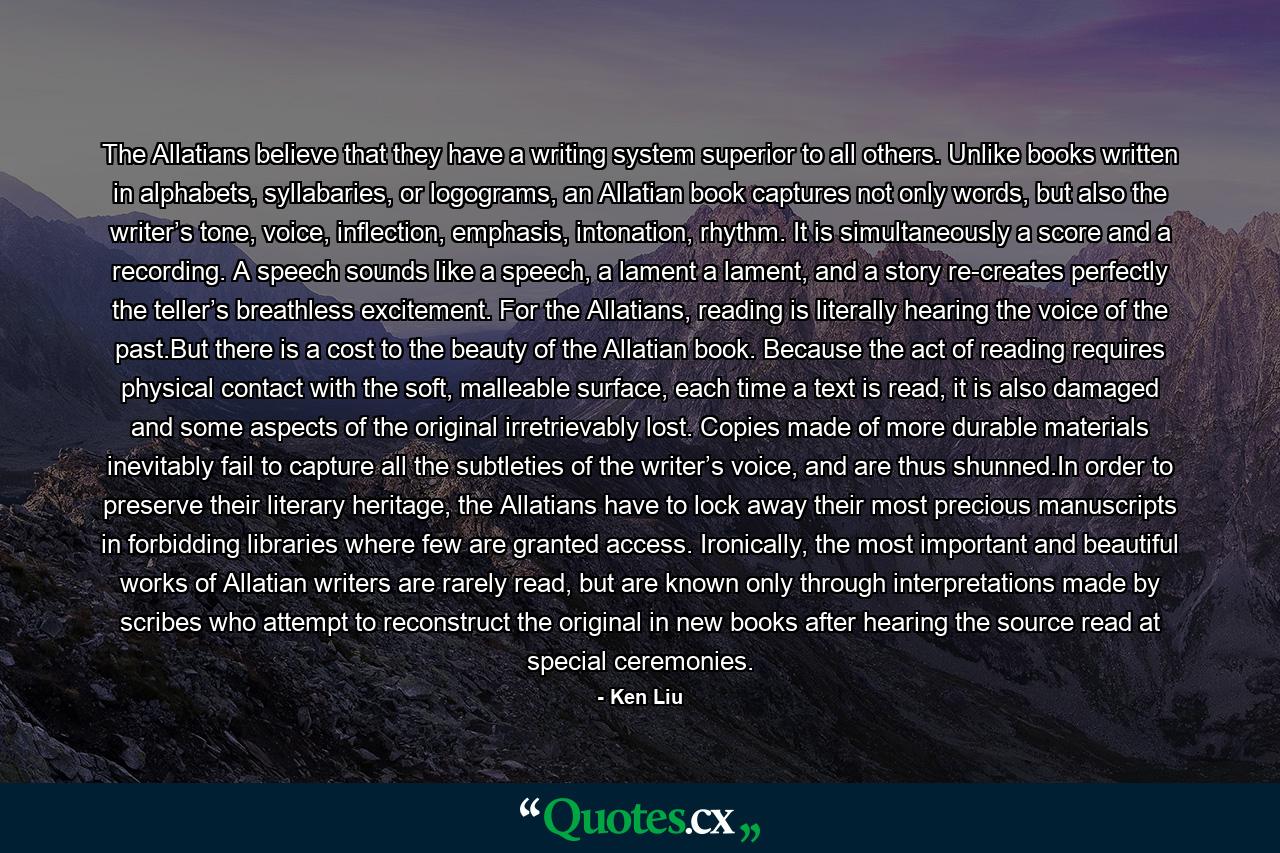The Allatians believe that they have a writing system superior to all others. Unlike books written in alphabets, syllabaries, or logograms, an Allatian book captures not only words, but also the writer’s tone, voice, inflection, emphasis, intonation, rhythm. It is simultaneously a score and a recording. A speech sounds like a speech, a lament a lament, and a story re-creates perfectly the teller’s breathless excitement. For the Allatians, reading is literally hearing the voice of the past.But there is a cost to the beauty of the Allatian book. Because the act of reading requires physical contact with the soft, malleable surface, each time a text is read, it is also damaged and some aspects of the original irretrievably lost. Copies made of more durable materials inevitably fail to capture all the subtleties of the writer’s voice, and are thus shunned.In order to preserve their literary heritage, the Allatians have to lock away their most precious manuscripts in forbidding libraries where few are granted access. Ironically, the most important and beautiful works of Allatian writers are rarely read, but are known only through interpretations made by scribes who attempt to reconstruct the original in new books after hearing the source read at special ceremonies.
